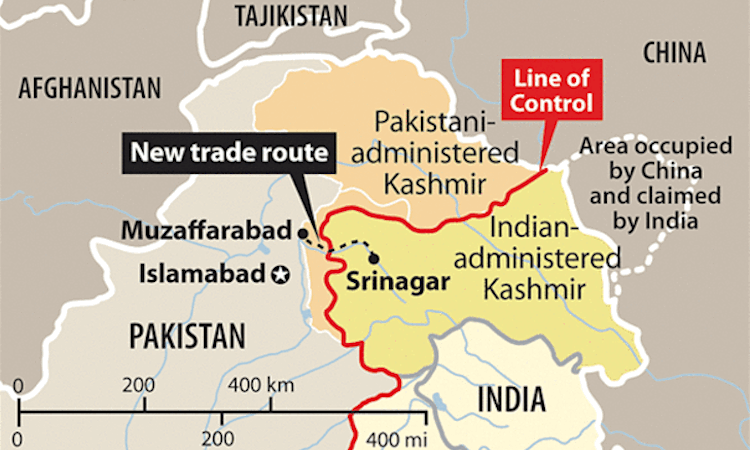On 1 February 2021, the government led by Aung San Suu Kyi was overthrown in a military coup. It is hard, however, to make sense of this coup as the civilian government in Myanmar (Burma) was really only a figleaf behind which stood continuing military control of the country.
One Burmese commentator wrote: “This coup doesn’t make sense. The Tatmadaw [the Burmese military] and its members, with the exception of a few top leaders, were free to do as they pleased. War crimes and atrocities against ethnic and religious minorities had continued under the National League for Democracy government.
“They still controlled every weapon in the country through their continued control of the military, police, and other security authorities. Tatmadaw MPs and military-aligned party MPs created a voting block in parliament that was guaranteed to veto any changes to the constitution. Military owned and aligned companies were still free to do business nationally and with international partners.
“To top it all off, the Aung San Suu Kyi-led government, not the military, received most of the international condemnation for everything that was wrong in Myanmar. To do a coup under these circumstances is stupid … So this coup is a surprise though it is not shocking. It’s also stupid.” (Myanmar: The stupid coup by Aye Min Thant, The News Lens, 2 February 2021)
The Times confirms this view: “What is happening is not a coup d’etat in the conventional sense. The military already pulls the strings in the country. It already is the etat. The generals drafted the current constitution, which guarantees that officers automatically pick up 25 percent of the seats in parliament.” (The Times view on the Burma coup: Burmese Daze, 2 February 2021)
The puzzle explained
What appears to explain matters is that “Like many hard-working and ambitious men, Senior General Min Aung Hlaing, Burma’s self-appointed military dictator, dreaded retirement.
“After a decade as the commander-in-chief of the Burmese armed forces, the Tatmadaw, he was due to step down on his 65th birthday in July — and he had more reasons than most for trepidation.
“He had already been placed under sanctions by the United States for his responsibility in the murderous ethnic cleansing of more than 700,000 Rohingya muslims. Several international courts, including the International Court of Justice in the Hague, are considering his criminal responsibility in what many regard as a genocide.
“Stripped of his position, he could have been vulnerable to investigation of his family’s business interests and faced questions about how a simple soldier became so wealthy.” (Min Aung Hlaing’s secret motive for Burma coup by Richard Lloyd Parry, The Times, 1 February 2021)
Min Aung Hlaing’s business interests
And in fact the vast extent of the business interests of the general and his various family members scream loudly of corruption, suggesting that he had a great deal to lose if the question were pursued as soon as he stepped down from his post at the head of the Burmese military.
The campaign group Justice for Myanmar has given details of these vast business interests: “Senior General Min Aung Hlaing has ultimate authority over Myanmar’s two military conglomerates – Myanmar Economic Corporation (MEC) and Myanmar Economic Holdings Limited (MEHL),” the group noted.
“MEC and MEHL are reportedly invested in Myanmar’s commercial port activity, container depots, jade and ruby mining, real estate, construction and other lucrative sectors.”
Min Aung Hlaing’s son, Aung Pyae Sone, operates a “medical supply business, A&M Mahar, sells Food and Drug Administration clearances and brokers imports, as well as trading and marketing pharmaceuticals and medical technology,” the statement said.
Aung Pyae Sone also owns Azura Beach resort, which promotes itself as the ‘largest resort in Chaung Tha’, a seaside area in the Ayeyarwady region popular with Yangon elites.
Sky One Construction was granted permission a few years ago to build a resort on 22.22 acres of land leased from the government. The company is owned by Aung Pyae Sone.
“Aung Pyae Sone’s wife, Myo Yadanar Htaik is also in business, including as a director of Nyein Chan Pyae Sone Manufacturing & Trading Company with her husband.
“Min Aung Hlaing’s daughter, Khin Thiri Thet Mon, owns Seventh Sense, a media production business that makes big-budget films and has exclusive contracts with Nay Toe and Wut Hmone Shwe Yi,” the statement said. The list of the family’s holdings is impressive, to say the least!
With so much to lose if investigations uncover the corruption on which such wealth must necessarily be based, the general “set his heart on a retirement job that would continue to protect him: the leadership of Burma’s civilian government as well as its armed forces. It was this, according to foreign observers in Burma, that led to the coup and to his self-proclamation as national leader.
“The problem was that the post was occupied, by Aung San Suu Kyi … so Min Aung Hlaing placed his hopes in the general election held in Burma last November.
“In her five years running the government, Suu Kyi, he calculated, had failed to transform the impoverished lives of most Burmese citizens. But her immense popularity held out — he was genuinely shocked, those who have met him report, when his own Union Solidarity and Development party won fewer than 10 percent of votes.
“He then pursued a dual approach — claiming that the election had been fraudulent, and negotiating behind the scenes with Suu Kyi’s National League for Democracy (NLD) for a job in her government.
“According to diplomats, she offered him the job of vice-president, which he refused. He began dropping hints that if power was not given to him he would seize it.” The rest is now history. (Richard Lloyd Parry, op cit)
The role of Russia and China
China and Russia vetoed a United Nations security council resolution condemning the coup – which presumably would have paved the way for imperialist sanctions that would just as much be directed against their interests as those of the Burmese military and people, but they did support a motion calling for Aung San Suu Kyi’s civilian government to be restored.
There are those among the oppressed people of Burma who believe that international sanctions are desirable, that imperialism would altruistically come to rescue them from the grip of the hated military. This puts us in mind of the following of Aesop’s fables: The Rabbit, the Weasel, and the Cat:
While a rabbit was absent from his hole one day, a weasel took possession of it. On the rabbit’s return, seeing the weasel’s nose sticking out, he said: You must leave this hole immediately. There is only room for one, and it has always belonged to me and my fathers before me.
The more reason that you should give it up now, said the weasel, and leave its possession to me. As they could not settle the dispute, they agreed to leave the question of ownership to a wise old cat, to whom they went without much ado.
I am deaf, said the cat; put your noses close to my ears. No sooner had they done so, than she clapped a paw upon each of them, and killed them both.
Moral: The strong are apt to settle questions to their own advantage.
Substitute the Burmese people for the rabbit, the military for the weasel, and the cat for imperialism and Aesop’s lesson from 2,500 years ago is more than clear.
China has been criticised for trading with ‘the military’ and not imposing sanctions despite the government’s lamentable behaviour towards the Rohingya. However, China’s foreign policy has long been to deal with whoever is effectively in power in any country, on the principle that it is for the people of that country to settle the question of who is to lead them, and absolutely not for any foreign power to decide, including China.
In any event, singling out China avoids the reality that the entire ‘international community’ has continued dealing with Burma’s government, notwithstanding the proliferation of ringing condemnations.
“China remains Myanmar’s largest trading partner, [but] its biggest foreign investor last year was Singapore. Japan, south Korea and Thailand have also poured money into the country, making it much less isolated than it was during the decades of military rule.
“Japan joined the United States and other Group of 7 nations in condemning the coup, but it appears unlikely to support new sanctions against Myanmar’s military rulers.” (In geopolitical struggle over Myanmar, China has an edge by Steven Lee Myers and Hannah Beech, New York Times, 5 February 2021)
Moreover, although today attempts are being made to paint China as being hand-in-glove with the military, China’s relationship with the military has tended always to be somewhat problematic as China at one time was supplying armaments to various Burmese guerrillas from Burma’s oppressed minorities and the Burmese military has always disliked it. China did, however, have excellent relations with Aung San Suu Kyi.
As the New York Times article points out: “As western sanctions hurt Myanmar’s economy in the 1990s, the military began to plan economic liberalisations that would free it from dependence on China’s largess, and it has defied its powerful neighbour in recent years,” so China focused on “closer political ties with Ms Aung San Suu Kyi and her party, the National League for Democracy. As Myanmar’s civilian leader, Ms Aung San Suu Kyi visited China more than any other foreign country.
“Mr Xi went to Myanmar in January of last year — his last foreign trip before the coronavirus pandemic froze most travel — and signed a flurry of agreements, including railroad and port projects that are part of China’s Belt and Road programme to expand its economic corridors to the Indian Ocean.
“The fates of such projects are now shrouded in uncertainty.”
It is obvious, one would have thought, that China is not going to be best pleased about the coup that has taken place. However, bearing in mind that imperialism, especially US imperialism, is committed to the view that China is an enemy whose growth must be halted, whose Belt and Road initiative must be scuppered as far as possible, which must be edged out of every market and every strategic territory in order to advance the interests of imperialism in the name of ‘democracy’, as well as the fact that China shares a border with Burma, it is readily apparent why China would not be leaping on the sanctions bandwagon.
The Burmese masses resist
In the meantime, it would appear that the Burmese people are taking advantage of the generals’ stupidity to take to the streets in massive protests demanding the restoration of the civilian government and respect for the election result. Their demands are being backed by countrywide strikes, including by thousands of public-sector employees.
The Economist reports: “Thousands of public-sector workers, from at least 245 districts and 21 ministries, are on strike, according to Kim Jolliffe, an analyst. Government offices are deserted. So too are classrooms. Many public hospitals have in effect shut.” (A boycott by bureaucrats is undermining the coup in Myanmar, 20 February 2021)
It seems that for now the military is stopping short of unleashing the full force of its capacity for violence, with relatively little use, for instance, of live bullets in their guns. It is possible that this indicates unwillingness on the part of ordinary soldiers to turn on their compatriots.
At this moment in time, it seems likely that the military is going to have to start making considerable concessions if it is not to see its grip over the country prised rudely open.












